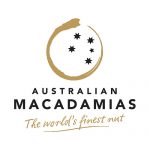Did you know that human gastrointestinal microbiota, also known as gut flora or gut microbiota, is the human body’s largest population of microorganisms that live in the intestine? As well as absorbing energy from food, gut microbes are essential to helping humans take in nutrients. Gut bacteria help us break down complex molecules in food.
Can gut bacteria improve your health?
About 100 trillion bacteria, both good and bad, live inside your digestive system. Collectively, they’re known as the gut microbiota1. Within those trillions of gut bacteria, there are about 1,000 different species, represented by some 5,000 distinct bacterial strains. Everyone’s gut microbiota is unique, but there are certain combinations and collections of bacteria that are found in healthy individuals.
The main factors that affect your personal microbial mix are age, diet, environment, genes, and medications (particularly exposure to antibiotics, which can deplete gut bacteria). Your gut microbiota plays many roles. It metabolizes nutrients from food and certain medications, serves as a protective barrier against intestinal infections, and produces vitamin K, which helps make blood-clotting proteins.
Since the gut microbiota is so complex, it is difficult to pinpoint certain bacteria as the most beneficial.
The role of nuts and dried fruits in gut microbiota
Nuts are foods (prebiotics) for the bacteria (probiotics) and nut skins in particular, appear to play an important role since they are rich in fiber and polyphenols, with antioxidant and anti-inflammatory properties. Studies conducted with almonds and pistachios have reported increases in the growth of beneficial bacteria leading to increased butyrate – a short chain fatty acid (SCFA) – which is thought to keep colon cells healthy.
Keys for a healthy gut microbiota composition
A healthy host–microorganisms balance must be respected in order to optimally maintain the intestinal barrier and immune system functions and, consequently, prevent disease development.
Food components have a key impact on the gut microbiota, influencing its composition in terms of richness and diversity. On the one hand, high intake of animal proteins, saturated fat, sugar, and salt could stimulate the growth of pathogenic bacteria to the detriment of beneficial bacteria, leading to potential alterations of the intestinal barrier. On the other hand, the consumption of complex polysaccharides and plant protein could be associated with an increase of beneficial bacteria quantity, stimulating SCFA production. Moreover, omega-3, polyphenols, and micronutrients appear to have the potential to confer health benefits via modulation of the gut microbiota.
As you can see, dietary habits can strongly influence gut microbiota composition. So make sure you maintain a healthy diet with the foods mentioned above and remember to include nuts and dried fruits.










